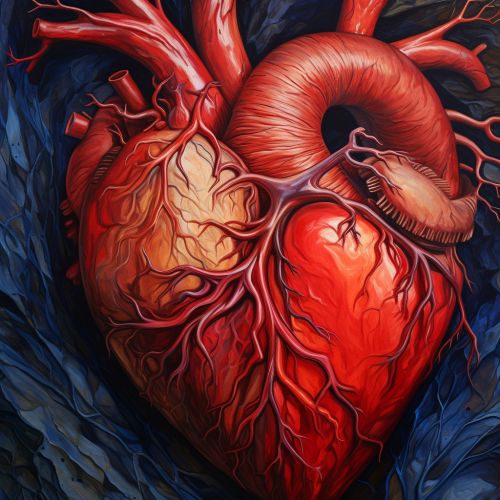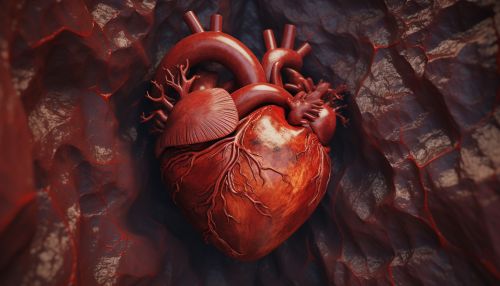Hypertrophic cardiomyopathy
Overview
Hypertrophic cardiomyopathy (HCM) is a condition in which a portion of the heart becomes thickened without an obvious cause. This results in the heart being less able to pump blood effectively. Symptoms vary from none to feeling tired, leg swelling, and shortness of breath. It may also result in chest pain or fainting. Complications can include heart failure, an irregular heartbeat, and sudden cardiac death.


Causes
The cause of HCM is usually genetic, and the condition is often inherited. It is commonly caused by mutations in genes that code for proteins that make up the heart muscle's contractile apparatus, known as sarcomeres. The most commonly affected genes are MYH7 and MYBPC3, which code for myosin heavy chain 7 and myosin-binding protein C, respectively. Other genes that can be affected include TNNT2, TNNI3, and TPM1, which code for the proteins troponin T, troponin I, and alpha-tropomyosin, respectively.
Symptoms and Complications
Symptoms of HCM can range from mild to severe, and some individuals with the condition may not experience any symptoms at all. When symptoms do occur, they can include chest pain, shortness of breath, fainting, and heart palpitations. These symptoms are often exacerbated by physical exertion.
Complications of HCM can include heart failure, arrhythmias, and sudden cardiac death. Heart failure occurs when the heart is unable to pump enough blood to meet the body's needs. Arrhythmias, or irregular heart rhythms, can occur as a result of the structural changes in the heart caused by HCM. Sudden cardiac death, although rare, can occur in individuals with HCM, particularly in young athletes.
Diagnosis
Diagnosis of HCM is typically made through a combination of physical examination, medical history, and diagnostic testing. Diagnostic tests can include an echocardiogram, which uses ultrasound waves to create images of the heart, and a cardiac MRI, which uses magnetic fields and radio waves to create detailed images of the heart. Genetic testing can also be used to identify the genetic mutations associated with HCM.
Treatment
There is currently no cure for HCM, but treatments are available to help manage symptoms and prevent complications. These can include medications, lifestyle changes, and in some cases, surgical procedures. Medications used to treat HCM can include beta blockers, calcium channel blockers, and antiarrhythmic drugs. Lifestyle changes can include avoiding strenuous physical activity and maintaining a healthy weight. Surgical procedures, such as septal myectomy or alcohol septal ablation, can be used in severe cases to reduce the thickness of the heart muscle.
Prognosis
The prognosis for individuals with HCM varies widely and depends on many factors, including the severity of the condition, the presence of other health conditions, and the individual's age and overall health. While some individuals with HCM may live normal, healthy lives with few symptoms, others may experience significant health problems and a reduced life expectancy.
